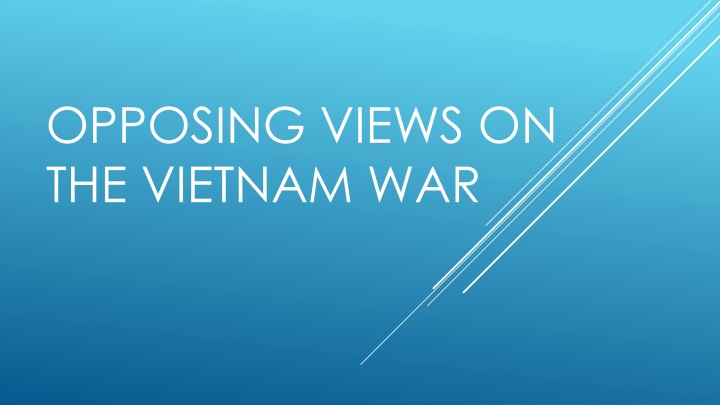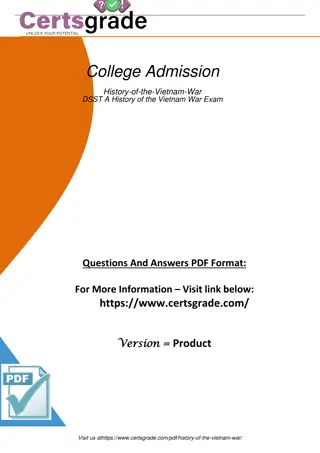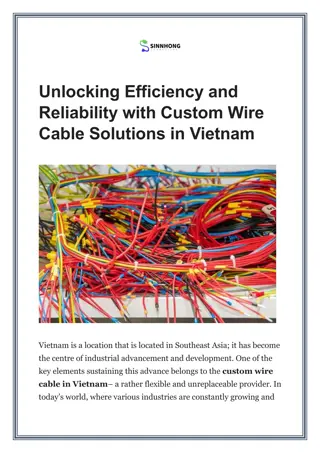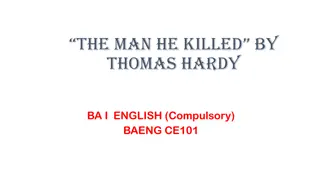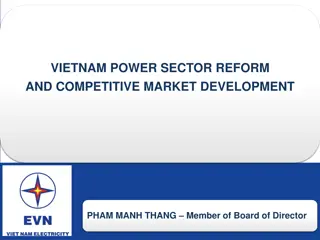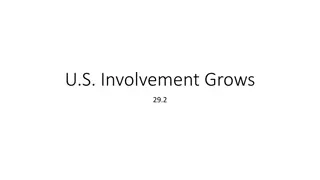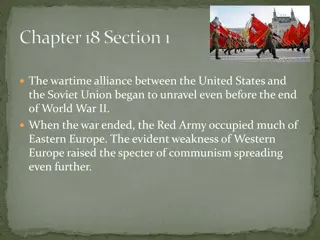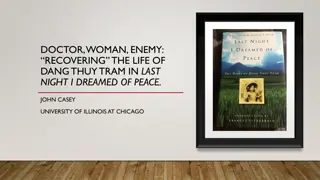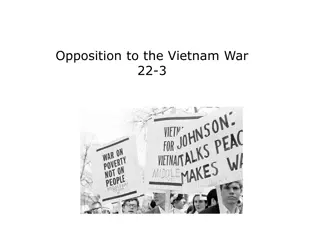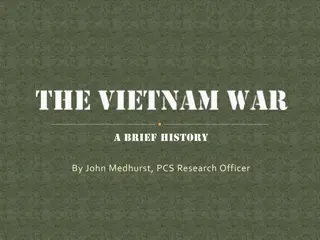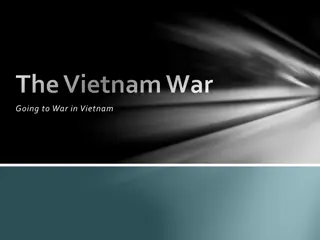OPPOSING VIEWS ON THE VIETNAM WAR
Partner with a classmate to simulate a dialogue between a draftee and a deferrer, discussing their views on the Vietnam War based on Nixon's speech and Kerry's testimony. Justify war opinions with examples from both sources.
Download Presentation

Please find below an Image/Link to download the presentation.
The content on the website is provided AS IS for your information and personal use only. It may not be sold, licensed, or shared on other websites without obtaining consent from the author.If you encounter any issues during the download, it is possible that the publisher has removed the file from their server.
You are allowed to download the files provided on this website for personal or commercial use, subject to the condition that they are used lawfully. All files are the property of their respective owners.
The content on the website is provided AS IS for your information and personal use only. It may not be sold, licensed, or shared on other websites without obtaining consent from the author.
E N D
Presentation Transcript
OPPOSING VIEWS ON THE VIETNAM WAR
PURPOSE: Understand Richard Nixon s policies concerning the Vietnam War in 1969 Understand the main arguments of Vietnam veteran John Kerry and the Vietnam Veterans Against the War in 1971 Understand that civilians held a variety of opinions regarding the war
As you are watching the Nixon Silent Majority speech, answer the following: What did Nixon believe would be the consequences of immediate U.S. withdrawal from Vietnam? What specific events did Nixon cite to support his arguments against precipitate troop withdrawal ? What is meant by the Silent Majority ?
As you read the John Kerry testimony, answer the following: What did John Kerry believe about the alleged threat that North Vietnam posed to the United States? What did John Kerry believe were the results of Nixon s policies as spelled out in the 1969 Silent Majority speech? What did John Kerry think of the policy of Vietnamization ?
VIETNAM DIALOGUE ASSIGNMENT You will partner up with one other student, and using the Nixon speech and You will partner up with one other student, and using the Nixon speech and Kerry testimony: Kerry testimony: - -type up a one and a half page dialogue, single spaced type up a one and a half page dialogue, single spaced - -one of you has been drafted for the war; one of you has received a one of you has been drafted for the war; one of you has received a deferment for the war deferment for the war - -one student will pretend he/she is in favor of the war; one student will one student will pretend he/she is in favor of the war; one student will pretend pretend he/she is opposed to the war he/she is opposed to the war - -in this conversation, provide reactions to be being drafted and to in this conversation, provide reactions to be being drafted and to receiving a deferment receiving a deferment - -students should justify his/her opinion about the war students should justify his/her opinion about the war - -students need to use examples from the both Nixon speech and Kerry students need to use examples from the both Nixon speech and Kerry testimony in your conversation testimony in your conversation
GENERAL SCORING RUBRIC 9 10 -Vietnam dialogue is one and a half pages -clear, accurate, and thoughtful written dialogue that expresses the opinion that the student is role-playing; opinions are well-developed; dialogue shows commitment to one s position -several examples from the Silent Majority and Kerry testimony are used 8 -Vietnam dialogue is one and a half pages -clear and accurate written dialogue that expresses the opinion that the student is role-playing; opinions are well-developed -several examples from the Silent Majority and Kerry testimony are used 7 -Vietnam dialogue is one page in length -written dialogue expresses the opinion that the student is role-playing; opinions are somewhat well-developed -a few examples from the Silent Majority and Kerry testimony are used
